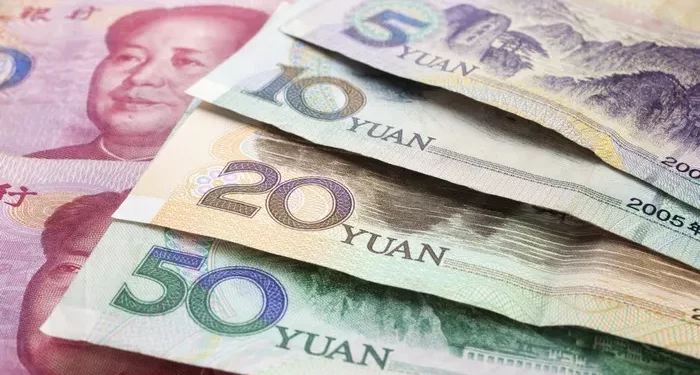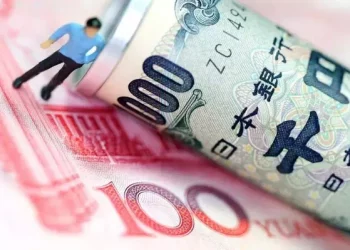The global foreign exchange market, or Forex, is the largest financial market in the world. It enables the exchange of currencies, influencing everything from international trade to personal travel expenses. Among the numerous currency pairs that are traded, the exchange between the South Korean Won (KRW) and the Chinese Yuan (CNY) has gained interest. This interest stems from the growing trade and economic ties between South Korea and China.
In this article, we will look at the process of converting 1,000 South Korean Won to Chinese Yuan, examine factors that influence their exchange rate, and explain why understanding this exchange rate can be beneficial. We will also delve into various methods for converting currencies and highlight the basics of the Forex market.
Basics of the South Korean Won (KRW) and the Chinese Yuan (CNY)
The South Korean Won (KRW)
The South Korean Won (KRW) is the official currency of South Korea. The Bank of Korea issues and manages the currency. Since the 1960s, the South Korean Won has been through several changes, eventually stabilizing as South Korea’s economy grew into one of the largest in Asia. The Won is symbolized by ₩ and denoted by the ISO code “KRW.” It is subdivided into 100 jeon, although the jeon is no longer used in daily transactions.
The Chinese Yuan (CNY)
The Chinese Yuan, also known as the Renminbi (RMB), is the official currency of the People’s Republic of China. The People’s Bank of China issues the Renminbi. In the international market, the Yuan is represented by the symbol ¥, and the currency code “CNY” is used. The Chinese Yuan has gained prominence as China has become a leading global economic power. In recent years, the Yuan has been increasingly used in global transactions, reflecting China’s economic influence.
Current KRW to CNY Exchange Rate
To understand the value of 1,000 KRW in CNY, we first need to look at the current exchange rate. As of recent data, 1 KRW is roughly equal to 0.0053 CNY. This means that 1,000 KRW would be approximately 5.3 CNY. However, exchange rates fluctuate constantly due to various factors, including supply and demand, geopolitical events, and economic data releases.
How Exchange Rates Work
What is an Exchange Rate?
An exchange rate is the value of one currency expressed in terms of another currency. For example, if the KRW/CNY exchange rate is 0.0053, this means that 1 KRW can be exchanged for 0.0053 CNY.
Types of Exchange Rates
Floating Exchange Rate: This is a rate that is determined by market forces without any direct intervention from the central bank. The values fluctuate based on supply and demand.
Fixed Exchange Rate: Some countries fix their currency to a specific value or peg it to another currency. While South Korea’s Won has a floating rate, China has a managed floating system, meaning the Yuan’s value is influenced by the People’s Bank of China.
Factors Affecting the KRW to CNY Exchange Rate
1. Economic Data and Growth Rates
Economic data from South Korea and China play a significant role. Indicators like GDP growth, inflation rates, and unemployment affect each country’s currency value. For example, if China experiences strong economic growth, demand for the Yuan may increase, strengthening its value against the Won.
2. Trade Balance
South Korea and China have close trade relations. When one country exports more to the other, it affects the demand for the respective currency. A high demand for South Korean exports could increase demand for the Won, potentially increasing its value against the Yuan.
3. Interest Rates
Central banks in both South Korea and China set interest rates, influencing currency values. Higher interest rates in South Korea compared to China may attract investors seeking better returns, which increases demand for the Won.
4. Geopolitical Events
Geopolitical tensions, natural disasters, or global events can lead to rapid currency fluctuations. Investors often respond to news events by buying or selling currencies, which can impact the KRW/CNY exchange rate.
5. Market Sentiment
General investor sentiment can also affect exchange rates. If investors feel that the Chinese Yuan is a safer investment, it might appreciate against the Won, and vice versa.
Calculating Currency Conversion
Converting KRW to CNY can be done using a simple calculation. For example, if the current exchange rate is 0.0053, then:
1,000 KRW * 0.0053 = 5.3 CNY
This calculation gives us an approximate value, but actual conversions may vary due to fees and slightly differing rates in different markets.
Currency Conversion Tools
Several platforms offer real-time currency conversion services:
Banking Institutions: Most banks offer currency conversion services, though fees may be applied.
Online Currency Converters: Websites like XE, OANDA, and Google offer currency conversion tools.
Forex Platforms: Many trading platforms show real-time exchange rates and allow for the immediate purchase or sale of currencies.
Why is the KRW to CNY Exchange Rate Important?
1. Impact on Trade and Exports
For businesses in South Korea and China, knowing the KRW to CNY exchange rate helps in pricing goods and understanding the profitability of export and import transactions.
2. Travel and Tourism
As more people travel between South Korea and China, the exchange rate affects their purchasing power in each country.
3. Investment Decisions
Investors trading in South Korean or Chinese markets monitor the exchange rate as it affects returns. For example, a weaker Won might benefit South Korean exporters, leading to potentially higher stock prices in Korea.
4. Government Policies
Exchange rates are often considered in the formation of economic policies. If the Won depreciates sharply, South Korea’s central bank might intervene to stabilize it.
How to Manage Foreign Exchange Risk
Foreign exchange risk arises from the fluctuation of currency values. Businesses and investors often use strategies to manage this risk, especially in volatile currency pairs.
1. Forward Contracts
Forward contracts allow parties to lock in an exchange rate at a future date, protecting them from unfavorable rate changes.
2. Options
Currency options provide the right, but not the obligation, to exchange at a specific rate in the future. This flexibility allows investors to benefit from favorable changes while limiting downside risks.
3. Natural Hedging
Companies involved in cross-border trade may use natural hedging by balancing their receivables and payables in the same currency.
4. Diversification
For individual investors, holding assets in multiple currencies can provide a natural hedge against currency fluctuations.
Conclusion
Converting 1,000 Won to Yuan may seem like a straightforward calculation, but it opens a window into the complexities of the Forex market. By understanding the factors that influence the KRW/CNY exchange rate, businesses and individuals can make more informed financial decisions.
Whether you are a traveler, business owner, or investor, keeping an eye on currency movements is essential. Given the economic ties between South Korea and China, changes in their currency exchange rates will likely remain a point of interest for years to come.
Related Topics:
























